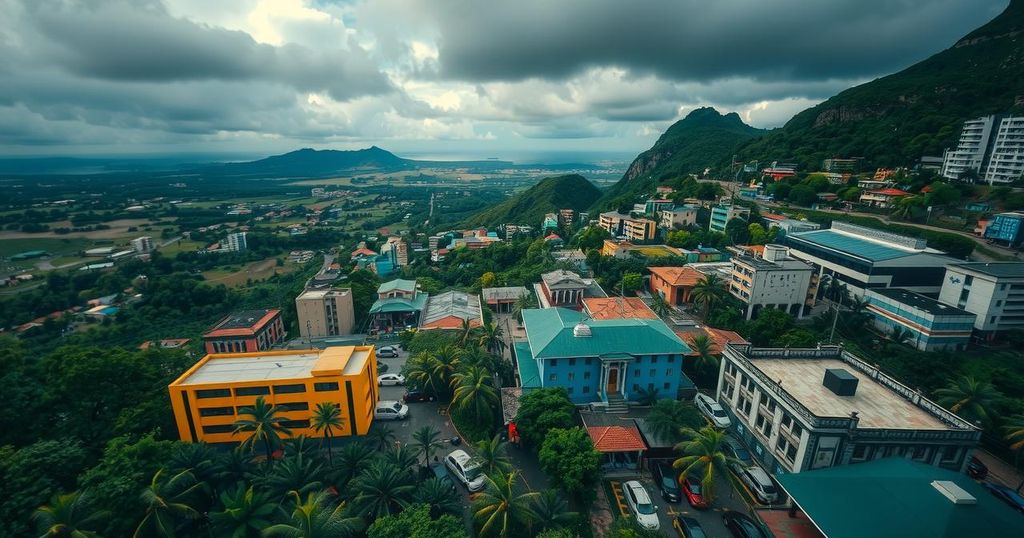Mauritius Election: High Stakes Amid Wiretapping Controversy

Mauritius is facing a tumultuous election amid a wiretapping scandal involving government officials, raising concerns over democracy and transparency. With Prime Minister Pravind Kumar Jugnauth seeking reelection, he faces challenges from opposition leader Navin Ramgoolam, who emphasizes corruption issues, and Nando Bodha targeting young voters. The election outcome will significantly affect the nation’s political and social landscape.
Mauritius is preparing for its 12th national election amid significant turmoil caused by a scandal involving alleged government wiretapping. Approximately one million eligible voters will cast their votes under the shadow of leaked recordings implicating high-ranking officials, including the police commissioner, in discussions surrounding opposition members and police misconduct. This election is set against a backdrop of a rapidly growing economy, which has recovered significantly post-COVID-19 pandemic, and a strong parliamentary democracy that has existed since 1968. Despite the traditionally high voter turnout of near 80%, the current election campaigns are dominated by the fallout from the wiretapping scandal. The situation escalated recently with the government imposing, and quickly retracting, a social media ban intended to “preserve national security.” The ongoing debates center around key issues such as rising living costs, drug-related crime, and concerns over governmental corruption and civil rights. Prime Minister Pravind Kumar Jugnauth, seeking reelection, is facing off against the Labour Party’s Navin Ramgoolam and Linion Reform’s Nando Bodha. Jugnauth is leaning on his government’s economic recovery and the successful negotiation for the return of the Chagos Islands from the UK. In contrast, Ramgoolam aims to spotlight issues of corruption and promises to introduce laws against wiretapping, reflecting the public’s demand for transparency. Bodha is targeting younger urban voters seeking change from established political dynamics. The health of Mauritius’ democracy is crucial as it navigates these challenges, with increasing scrutiny on governance, the economy, and social issues. As the election day approaches, the stakes are high, for the results will not only determine the future leadership but also the trajectory of civil rights and economic policies in the nation.
Mauritius, an island nation in the Indian Ocean, has maintained a stable democracy since gaining independence from Britain in 1968. With a diverse population and a high GDP per capita compared to other African countries, it is known for its thriving economy and tourism sector. However, its political climate is currently tense due to allegations of extensive wiretapping by governmental figures, which has sparked public outcry and complicated the electoral process. The current election, marked by the ongoing controversy of leaked recordings, puts the credibility of the political leadership at risk and raises questions about the future governance of the country.
The upcoming elections in Mauritius will significantly impact the nation’s political landscape amid growing concerns over governmental transparency and accountability. The wiretapping scandal has not only shaken public trust in leaders such as Prime Minister Pravind Kumar Jugnauth but also spotlighted crucial issues like rising living costs and crime. As voters prepare to make their choices, the outcome of this election will set the tone for Mauritius’ commitment to democracy and civil rights in the years to come.
Original Source: www.aljazeera.com








